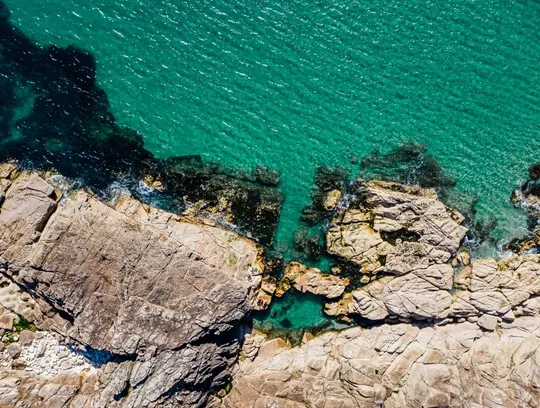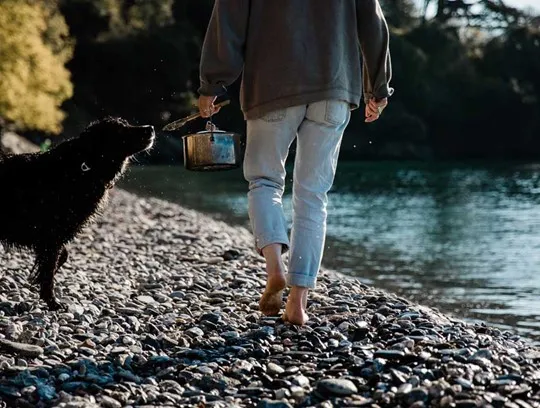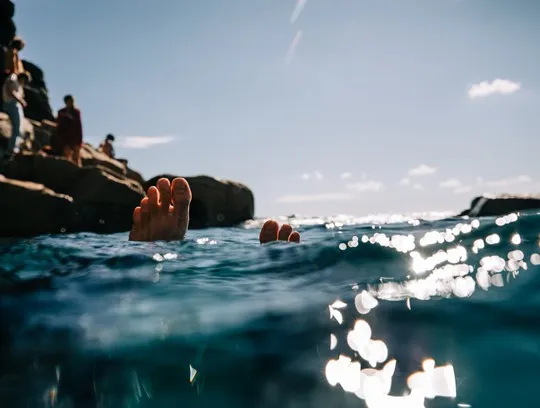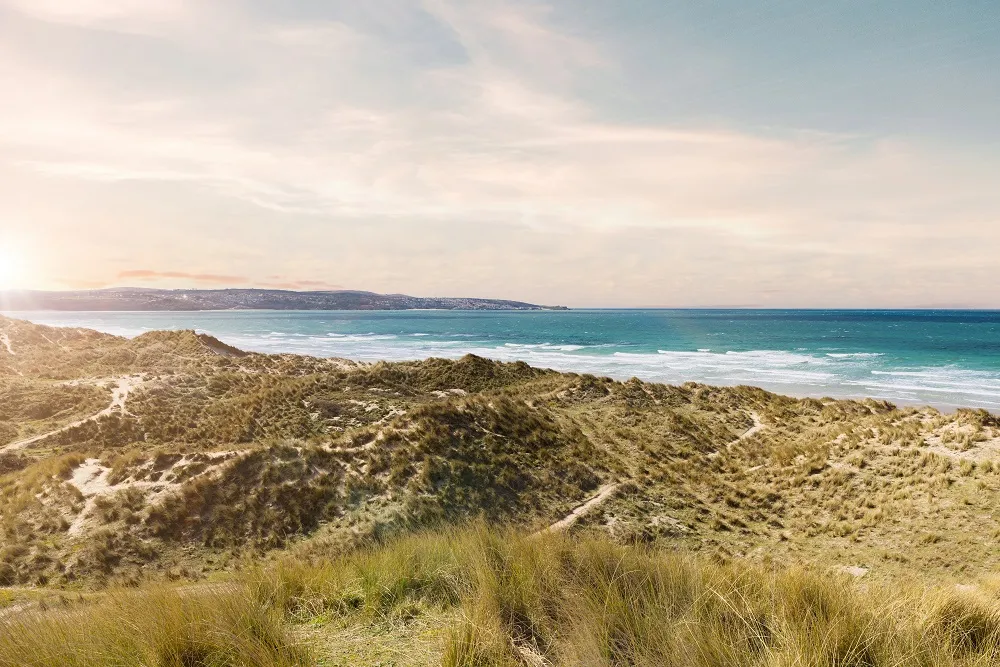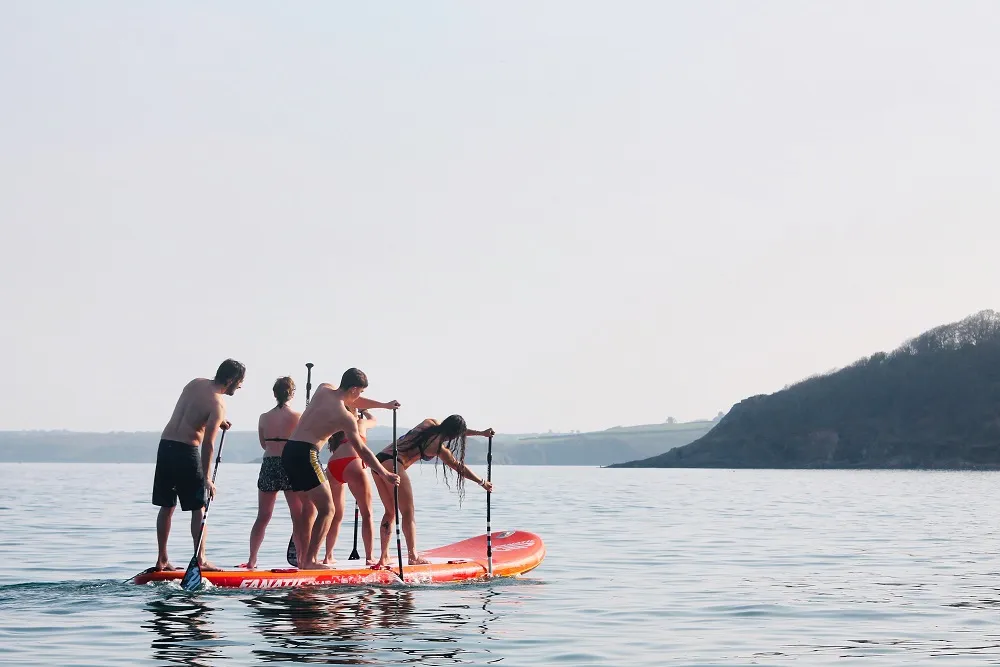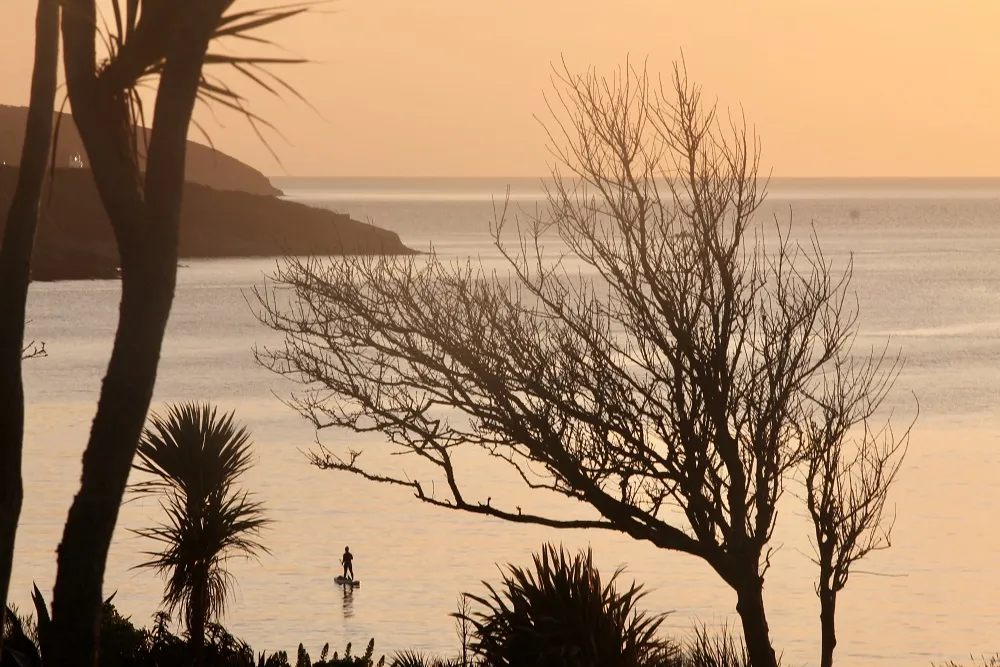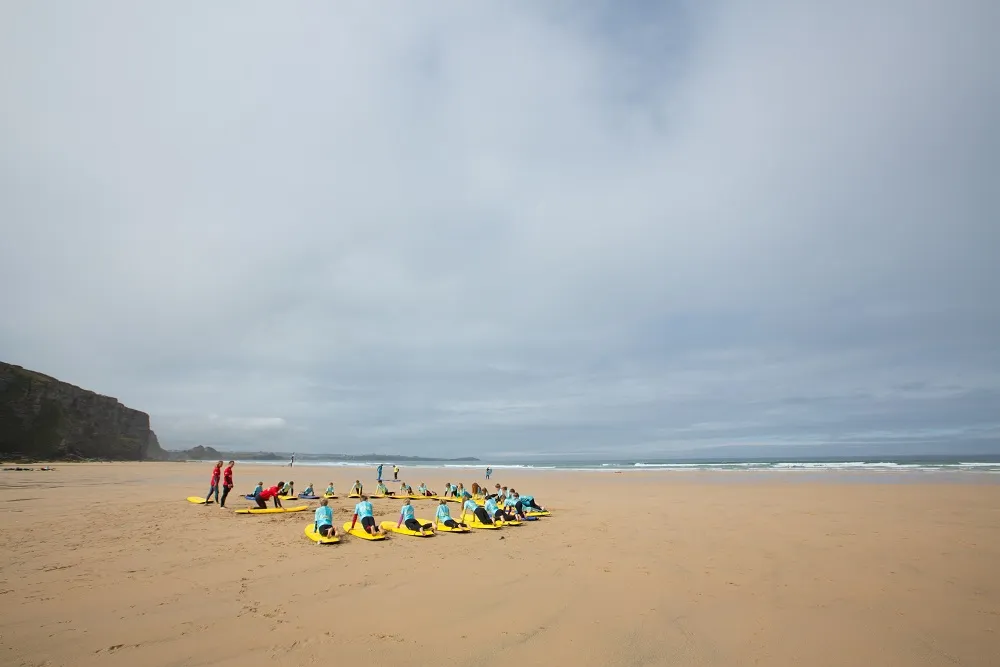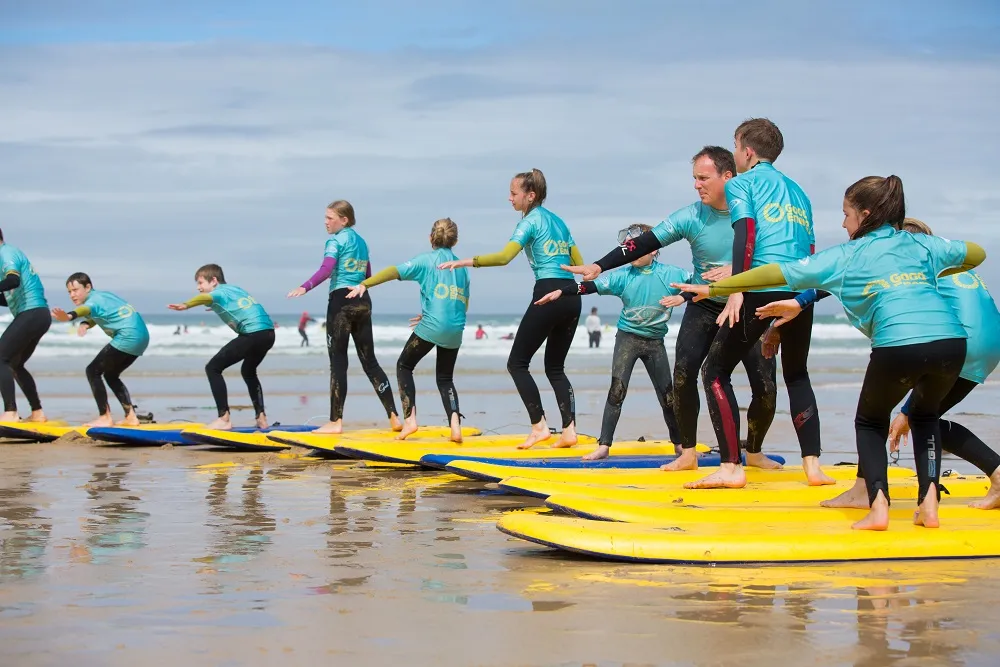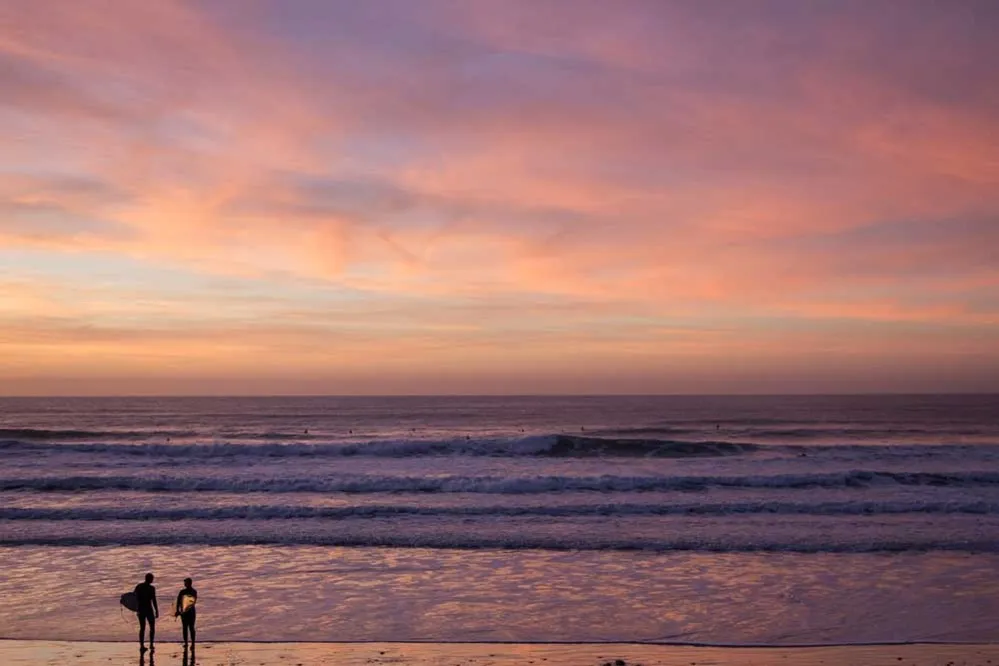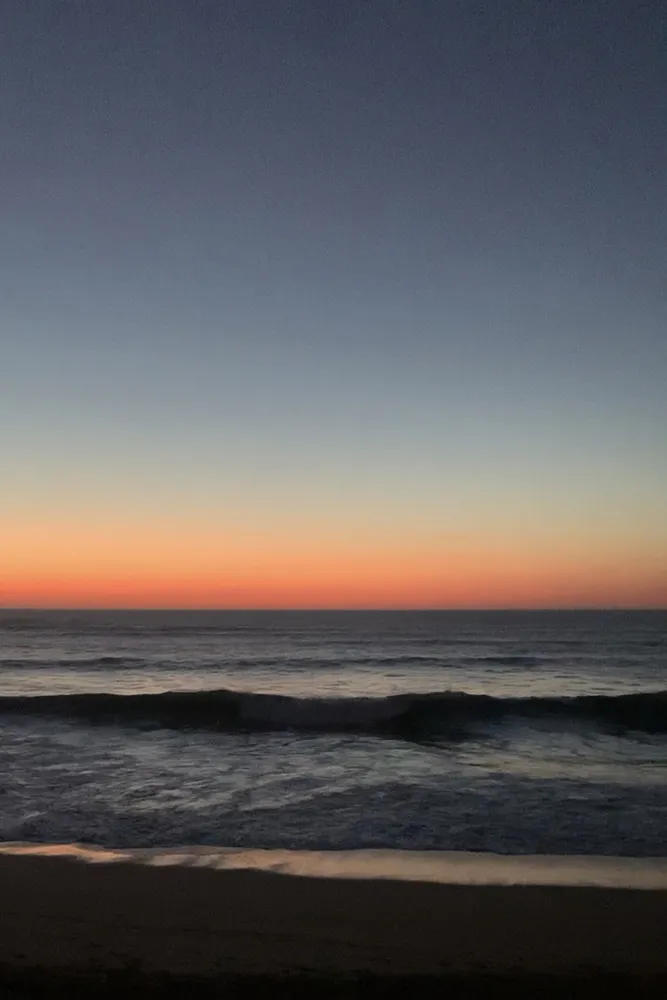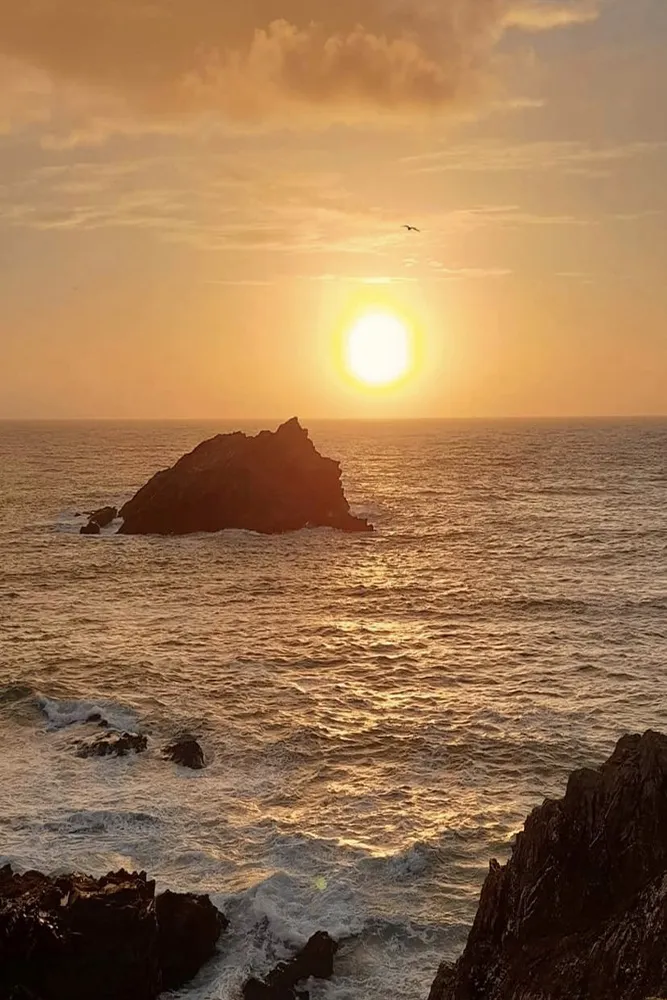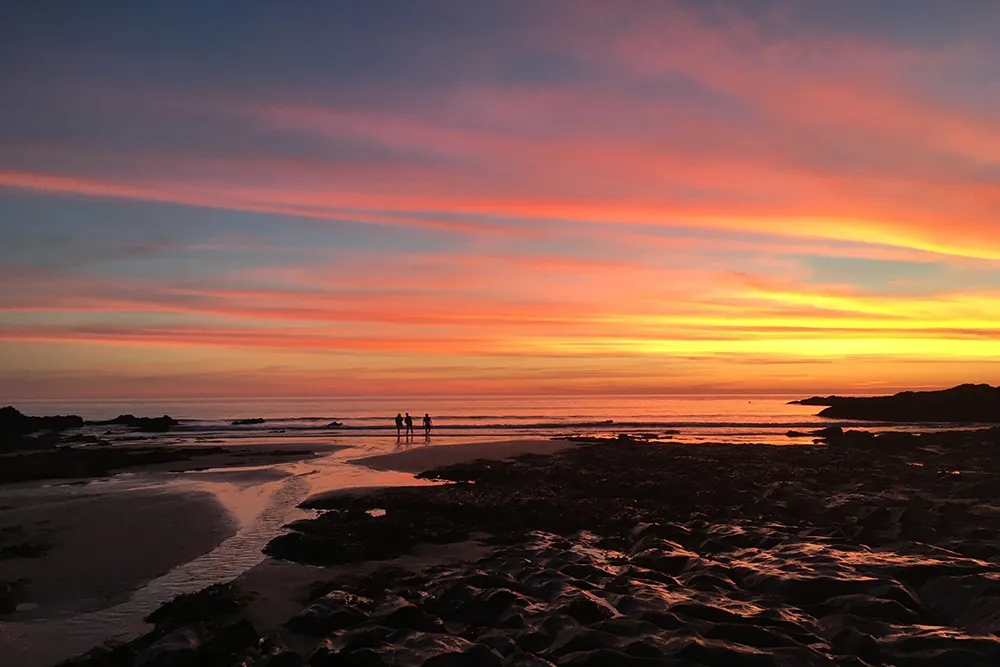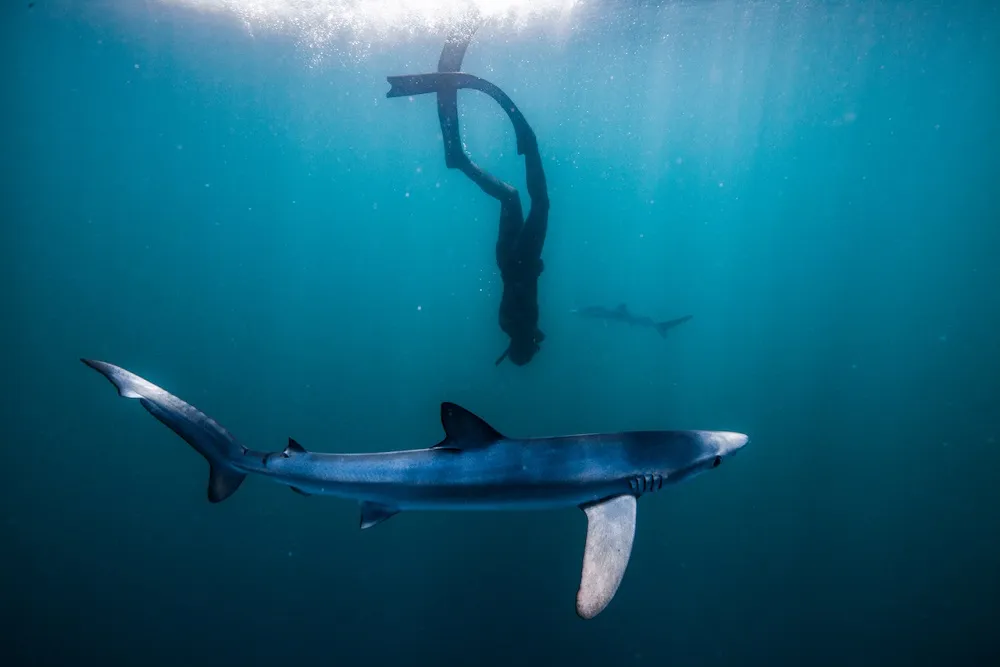
Whether you’re exploring on a single breath, or stealthily seeking your supper, taking your ocean activity beneath the surface is the ultimate in water time contradictions – giving in to the calm surrender of the deep even when your pulse is jumping…
Visiting Cornwall for a workcation? Have a look at our holiday lets perfect for extended stays and working.
Breathless discoveries

Credit: Aquacity
Hold your nerve, take a breath, dive. Freediving – diving beneath the surface on a single breath – is not a sport for the faint hearted. With no scuba or air tank to rely on and only your instinct as your guide, it’s at the more demanding end of the watersports spectrum.
“Freediving has the reputation of being an extreme sport,” says Georgina Miller from freediving outfit Aquacity in Porthkerris, “but really, it’s all about relaxing and exploring your relationship to the sea. It’s actually vital that you relax while challenging yourself and pushing your body to its limit.”
“It’s quiet and you’re in such a different environment – you can lose a sense of yourself and relax into it peacefully. But this only comes with patience and practice at being calm and present.”
A competitive free diver and instructor, Georgina explains that the breathing techniques freediving uses are useful for staying calm in any situation. But if you are brave enough to venture under the waves, the sport is even more of a stress buster, says Georgina. “Being underwater, for most people, allows some peace in an otherwise hectic world,” she continues, “It’s quiet and you’re in such a different environment – you can lose a sense of yourself and relax into it peacefully. But this only comes with patience and practice at being calm and present.”
Check out what Falmouth has to offer by staying in one of our bespoke retreats in Falmouth.
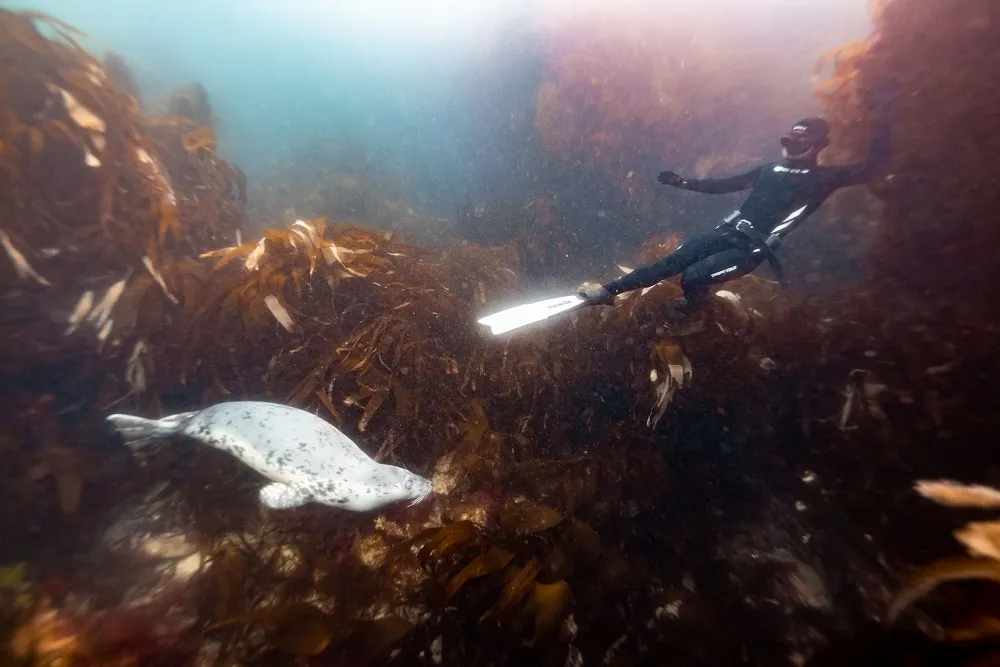
Credit: Aquacity
There’s no doubt that competitive freediving brings more of a heightened edge to the discipline. Freedivers can regularly swim down to depths of more than 100 metres on a single breath. It’s a very specialist, highly skilled world, where technique and ability juxtapose with mindfulness and calm. Freediving is not without its risks so it’s important to never dive alone and let qualified instructors lead you safely into the deep.
But even at the leisure pursuit end of the sport, there are thrills to be found. Though more often than not, they come from the interactions that happen under the water, rather than the depths reached.
In addition to dolphins and seals, Georgina regularly sees lobsters and spider crabs hiding in the cracks, magnificent shoals of pollock, wrasse and mackerel, and majestic basking sharks drifting through the depths.
“We had a training session recently where a pod of dolphins came to check us out – they looked like they felt sorry for us not being able to swim too well!” she concludes. “When you’re being checked out by marine mammals there definitely seems to be a connection, they’re curious, even playful. It’s pretty incredible.”
Steady stealth
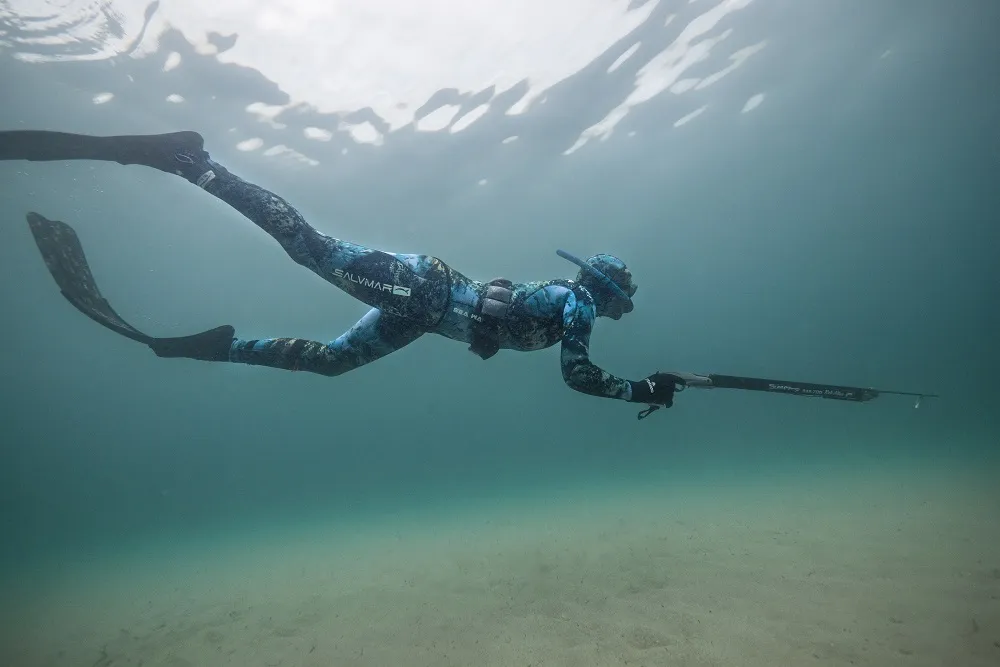
Credit: Chris Moakes
Add the pursuit and excitement of the hunt and catch into your deep water time and you’re taking it up a gear. Spear fishing, freediving’s faster-paced cousin, is one of the most sustainable ways to fish and requires, skill, dexterity, speed and patience, all in one.
This balance of quick action and absolute calm is something Laith Dajani from Spearfishing UK knows all too well, as he explains, of a recent dive. “On one breath I went down to 13 metres, to fish. It took roughly 17 seconds to get to the bottom. I found and speared a 9lb Pollock in seven seconds, and then came back up in another 17 seconds,” he says. The whole experience was just 41 seconds in total. But with that level of excursion and concentration, diving to and rising from the ocean floor all in the smallest window of time, staying relaxed is an epic task in itself.
“It’s all about stealth and tactics. Sometimes fish are curious…Alternatively, stalking works just as well, hiding or moving as slowly as possible through seaweed, not making a sound.”
For Laith, it’s the unique mix of control and quick thinking that gives spearfishing its appeal. “You want to remain as calm as possible. If you’re stressed, the fish will be stressed, and they won’t be comfortable around you,” he continues. “It’s all about stealth and tactics. Sometimes fish are curious, so making grunting noises can attract them, or throwing up sand can bring them in. Alternatively, stalking works just as well, hiding or moving as slowly as possible through seaweed, not making a sound.”
But when the time comes to fire the speargun, you have to think fast. “You need to be in the moment with no hesitation,” he says, “otherwise the fish will scatter and you’ll be swimming to the surface empty-handed.”
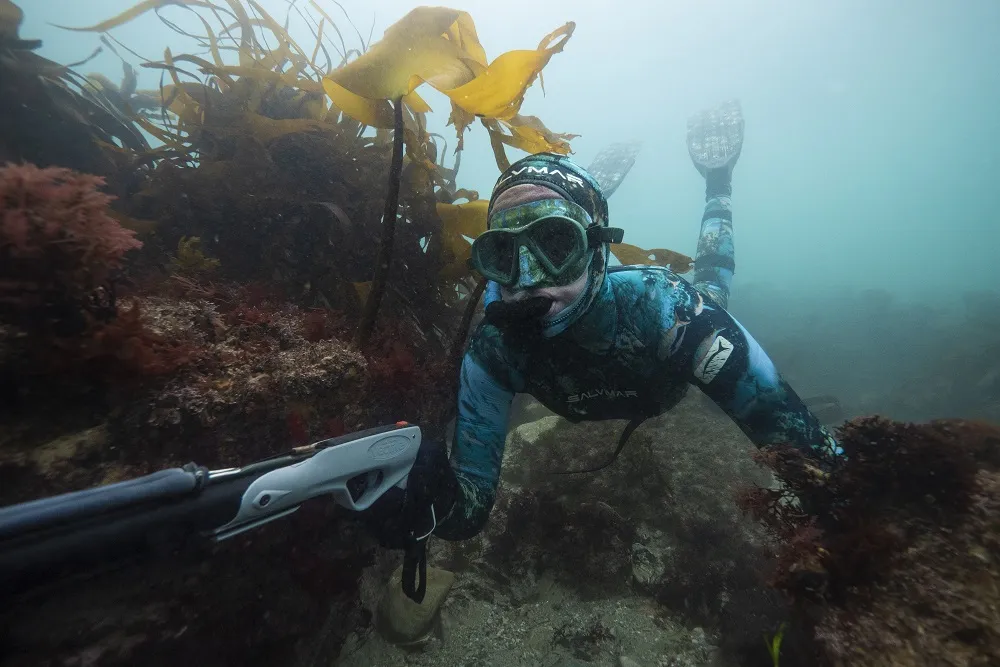
Credit: Chris Moakes
If the speargun isn’t for you, you can hunt for lobster, brown crabs, scallops and mussels by hand. For Laith, catching a 9lb lobster off Cornwall’s south coast was an unbeatable experience. “Lobsters like to hole up and can be found as shallow as one metre. You just need to look in as many holes as possible and eventually you’ll stumble across one.”
From combing the sea floor for shellfish to plunging into the deep, underwater ocean time is all about finding the right pace for you and working with the ocean. As Georgina says about freediving, “it’s not about an application of your will over the water, you have to consider the environment and work with it.” And what a magical environment the Cornish coastline has to offer, shoreline, surface or deep. Now, who’s for a dip?
Read about adventures of every pace: on the shoreline or on the surface too…
Experience transformational moments with Beach Retreats as you explore new horizons and enrich your soul.
